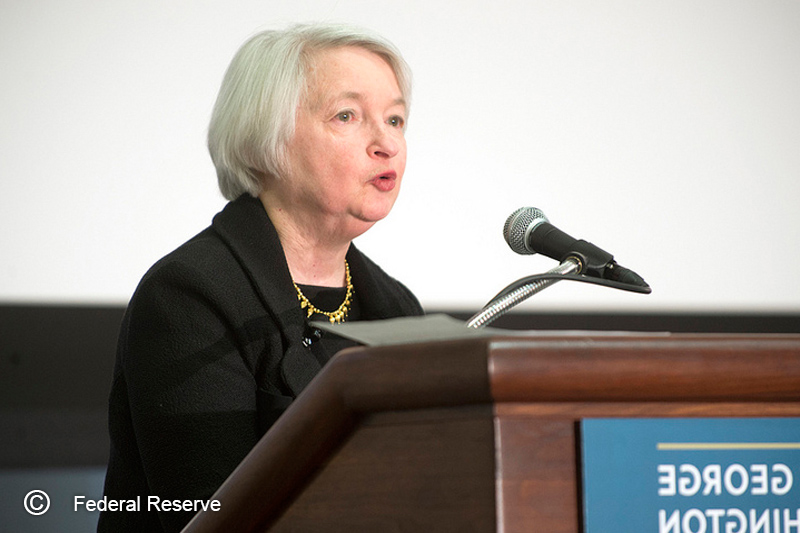Investing.com - The pound firmed against the dollar on Monday after Federal Reserve Chair Janet Yellen said the U.S. economy still needs monetary support, which offset soft U.K. lending and housing data.
In U.S. trading on Friday, GBP/USD was trading at 1.6675, up 0.21%, up from a session low of 1.6599 and off a high of 1.6681.
Cable was likely to find support at 1.6466, the low from March 24, and resistance at 1.6717, the high from March 13.
In her first major speech as Fed Chair, Yellen told the National Interagency Community Reinvestment Conference in Chicago, Illinois, that the U.S. economy still needs monetary support to ensure more sustained recovery.
"I believe it is appropriate for the Federal Reserve to continue to provide substantial help to the labor market, without adding to the risks of inflation, is because of the evidence I see that there remains considerable slack in the economy and the labor market," Yellen said in prepared remarks of her speech.
The Fed is currently purchasing $55 billion in bonds a month to spur recovery, a monetary policy tool known as quantitative easing that suppresses interest rates to prop up the economy, weakening the dollar as a side effect.
Yellen's words sent investors reevaluating the pace at which the U.S. central bank will taper its bond-buying program let alone begin hiking benchmark interest rates, which bruised the greenback against the pound and other currencies.
"I think this extraordinary commitment is still needed and will be for some time, and I believe that view is widely shared by my fellow policymakers at the Fed," Yellen said
Elsewhere, data revealed that manufacturing activity in the Chicago region expanded at a slower rate than forecast in March, as new orders fell.
The Chicago purchasing managers’ index fell 55.9 from 59.8 in February. Analysts had expected the index to tick down to 59.0.
Meanwhile in the U.K., the Bank of England reported earlier that U.K. mortgage approvals fell to 70,309 in February, the lowest level since October 2013. Market expectations had been for a slight decline to 75,000 from January’s more than six-year high of 76,753.
The BoE also said business lending was down ₤750 million compared with the previous month.
Net lending rose by ₤2.3 billion last month, in line with forecasts, up from ₤2.1 billion in January.
Elsewhere, sterling was up against the euro, with EUR/GBP down 0.07% at 0.8258, and up against the yen, with GBP/JPY up 0.48% at 171.90.
In Europe earlier, the euro zone's consumer price index slowed to 0.5% this month from 0.7% in February, undershooting expectations for a reading of 0.6%. The European Central Bank targets an inflation rate of just under 2%, and March's figure was the lowest since November of 2009.
The report showed that core inflation rose 0.8% in March, in line with forecasts, but down from 1.0% in February.
While inflation rates missed consensus forecasts, expectations for the European Central Bank to loosen policy sooner or later have been priced into trading by many investors, which gave the single currency room to shrug off soft consumer inflation numbers.
Separate expectations that the ECB will still remain in a wait-and-see mode at a policy meeting on Thursday due to sentiments that prices are soft but not deflationary also gave the euro some support.
On Tuesday, the U.K. is to release data on manufacturing activity.
Later Tuesday, the Institute of Supply Management is to publish a report on U.S. manufacturing growth.
